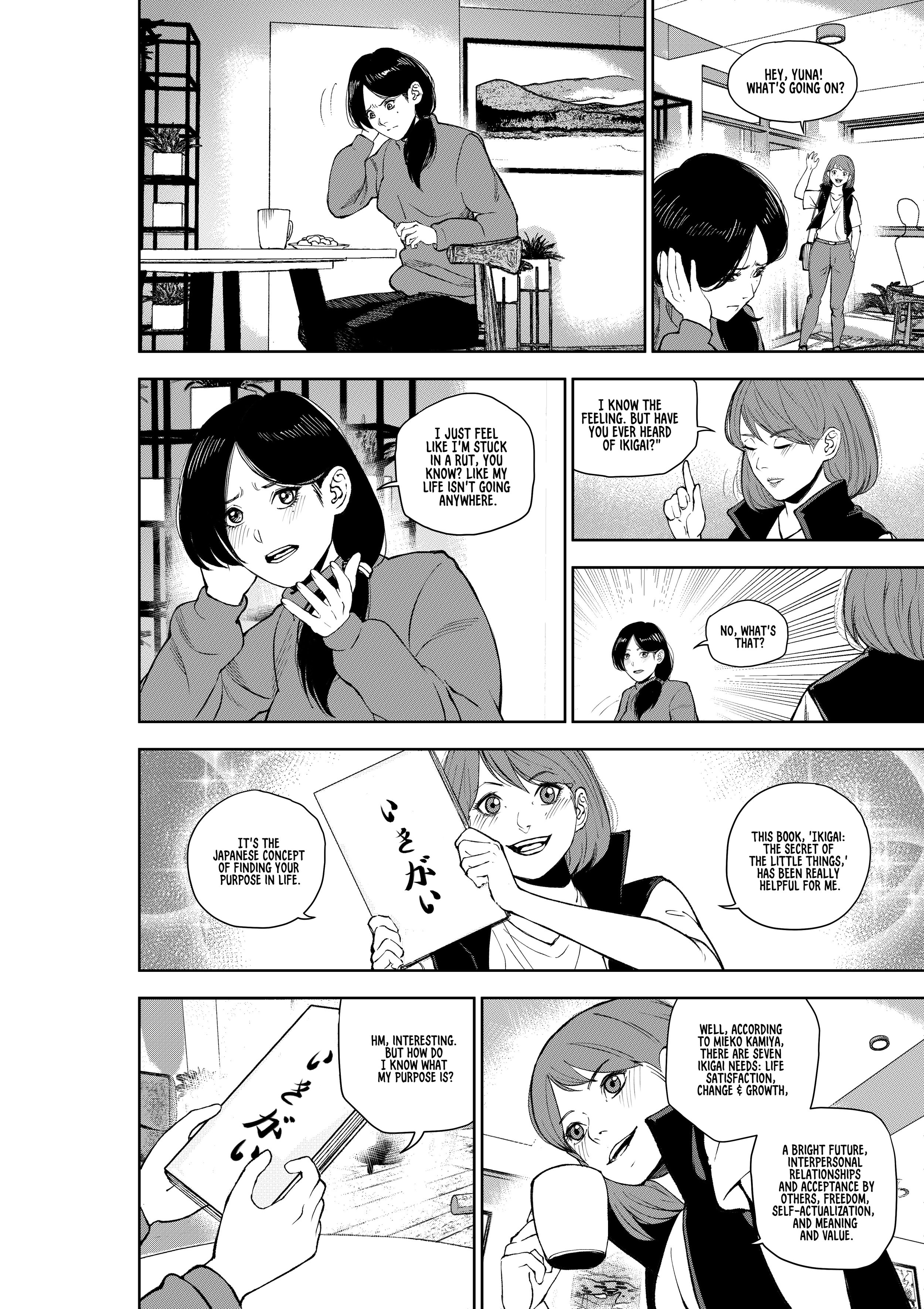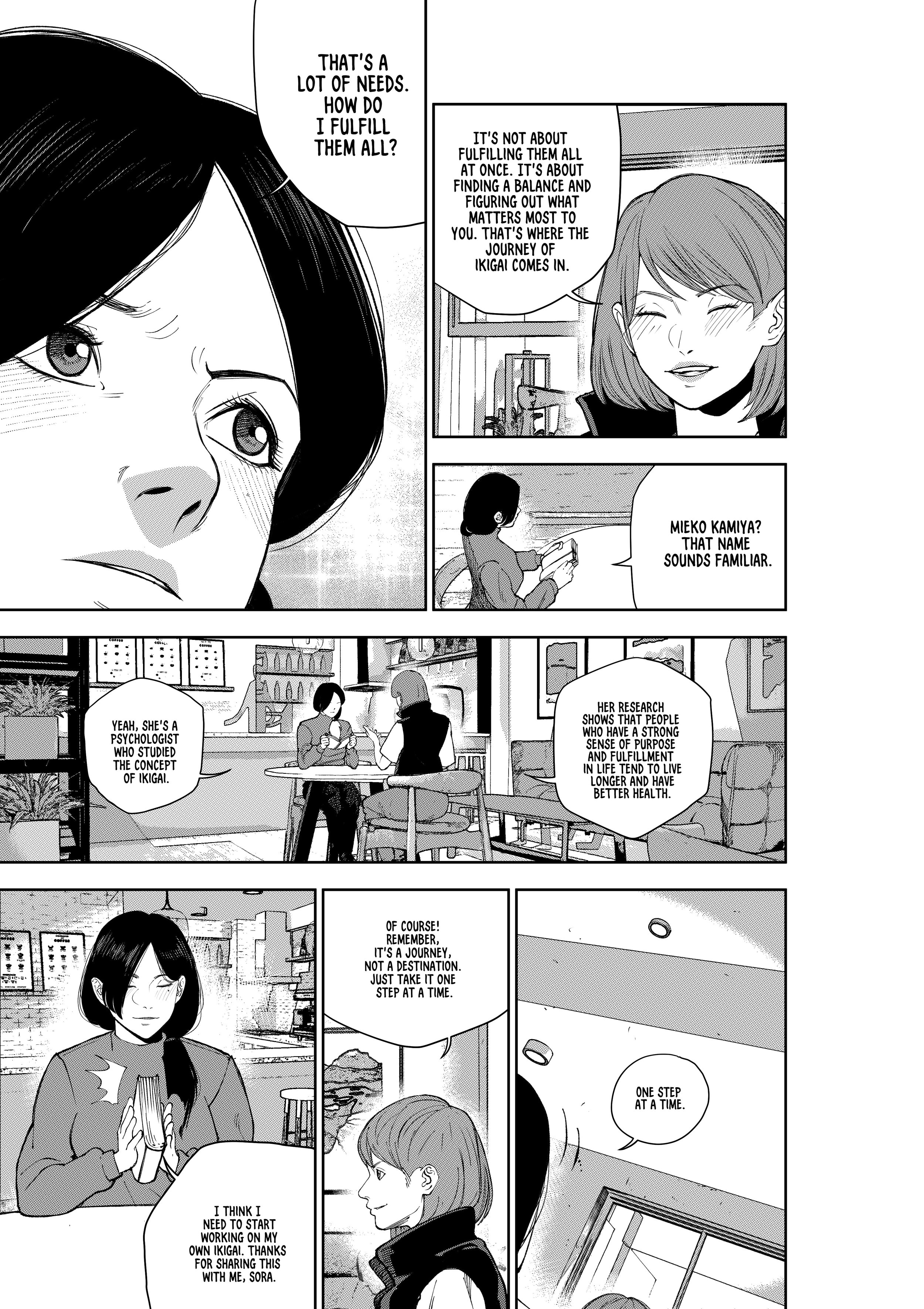Mieko Kamiya – the founder of Ikigai
A short manga comic from us about the life of Mieko Kamiya:
MIEKO KAMIYA - A TRUE HEROINE
She lived in the last century and was an amazing woman. She translated works by Marcus Aurelius, Michel Foucault, Virginia Woolf and Khalil Gibran.
She spoke German, French and English, studied abroad in the U.S. and Geneva, attended a Bible school and later became a clinical psychiatrist working with lepers.
She published her major work, "Ikigai-ni-Tsuite" - On the Meaning of Life - around 1966, drawing on Viktor Frankl's logotherapy.
Her work has never been translated into any other language, but we do our best to make her work accessible here with our courses and blog posts.
We had a lot of fun in the manga video with voices created with artificial intelligence. It's an experiment, take a look ✨
MIEKO KAMIYA'S LIFE IN a NUTSHELL
In addition to her medical expertise, Kamiya was also known for her passion for languages and her translations of philosophical books. Her life journey and experiences have touched me deeply, and I am happy to share her story with you.
Mieko Kamiya was born on January 12, 1914, and grew up in a family deeply involved in education and diplomacy. Her father, Tamon Maeda, was Japan's ambassador to the International Labor Organization before the war and later became minister of education. Kamiya's upbringing was marked by exposure to different cultures and by her fluency in several languages, including English, French and German.
Kamiya's academic journey took her to several educational institutions, including the Jean-Jacques Rousseau Institute in Geneva, where she studied under renowned developmental psychologist Jean Piaget. She continued her education at Tsuda College, where she met lepers at the Tama Zenshoen Sanatorium - a visit that made a deep impression on her and inspired her to become an advocate for them.
Despite the resistance she faced from the incurability of leprosy at the time, Kamiya pursued her dream of becoming a doctor. She studied at the Tokyo Medical University for Women and graduated in the fall of 1944. Fascinated by psychiatry, she joined the Department of Psychiatry at Tokyo University and devoted herself to understanding and treating mental illness.
After World War II, Kamiya's language and translation skills became valuable assets. She assisted her father, who had become minister of education, and provided support to the Ministry of Education and the General Headquarters.
She even served as an advisor to Empress Michiko.
MIEKO KAMIYA'S MEDICAL CAREER
In the 1950s, Kamiya again focused on leprosy patients. She studied psychiatry at Nagashima Aiseien Sanatorium, where she eventually became chief psychiatrist. Her experiences and interactions with leprosy patients shaped her outlook on life and inspired her most important work, "On the Meaning of Life" (Ikigai Ni Tsuite), which is based on insights gained during her time with these people.
Kamiya's book "Ikigai-ni-Tsuite" ("On the Meaning of Life") moved many readers in the industrial period after World War 2. In it, she examined ikigai as a concept of life and explored the longing for meaning and fulfillment. She believed that ikigai encompasses not only the object itself, but also the feeling ("ikigai-kan") that individuals experience when they discover their own ikigai.
„A person who is most likely to feel a sense of ikigai is convinced of his or her need to live, is clearly aware of his or her goal of “self-preservation,” and is fully committed to that goal.
In other words, a person who has a personal mission in his or her life that he or she proactively pursues experiences Ikigai at the highest level.“
Ikigai and Ikigai-kan
It essentially distinguished between ikigai as a source and ikigai-kan as a feeling or mental state. Here she made a direct reference to Viktor Frankl’s teachings (Logetherapy), which shows her broad and deep knowledge of the Third Vienna School of Psychology:
„There are two ways to use the word “ikigai.” It can refer to the source or object of life’s value, as in “This child is my ikigai,” or it can refer to the mental state of feeling ikigai. The latter is what Frankl calls the “sense of meaning.” I will call it “Ikigai-Kan” to distinguish it from the former “Ikigai” itself.“
For Kamiya, it was about aligning one's true nature with one's purpose in life and continuously working toward one's goals.
Tragically, Mieko Kamiya passed away on October 12, 1979, leaving behind a legacy of compassion, knowledge, and a deep understanding of the human condition.
Inspired by Kamiya's teachings and the influence she had, we seek to translate her work through our courses.
We believe in the authentic Japanese meaning of Ikigai, which goes beyond the usual Venn diagram representation to include the seven essential needs for a fulfilling life:
Life Satisfaction,
change and growth,
a bright future,
resonance and interpersonal relationships,
Freedom,
self-realization and
Meaning and Value.
When you look at Mieko Kamiya's 7 Ikigai Needs - which ones are most important to you today?
5 lessons we can learn from Mieko Kamiya's life
What ikigai students can learn from Mieko Kamiya: A trailblazer of purpose and empowerment
I. Embracing ikigai in the midst of challenges:
Mieko Kamiya's journey to become a prominent psychiatrist and philosopher was not without its challenges. In a society where women's roles were often restricted, Kamiya defied expectations and pursued a career in medicine. As Ikigai students, we can learn from her determination to overcome social barriers and pursue our passions, even when faced with obstacles or discouragement. Kamiya's unwavering commitment to serving leprosy patients and her pioneering research in psychiatry remind us to prioritise our purpose even in the face of adversity.
II. Redefining gender roles
Kamiya's pursuit of education and professional success in the early 20th century exemplifies her emancipation and redefinition of gender roles. She received a diverse education, including studies at prestigious institutions in Geneva and medical studies in Japan and the United States. Her ability to navigate different cultures, languages and academic disciplines challenged traditional gender expectations and paved the way for future generations of women to pursue their aspirations. As Ikigai students, we can draw inspiration from Kamiya's courage to challenge societal norms and forge our paths based on our true passions and abilities.
III. Integrating multiple disciplines
One of Kamiya's remarkable strengths was her ability to integrate multiple disciplines in her work. Fluent in several languages and well versed in philosophy, literature and medicine, she approached her research and clinical practice from a holistic perspective. Ikigai students can learn from her example by embracing interdisciplinary thinking and recognising the interconnectedness of different fields. By cultivating a broad knowledge base and seeking diverse perspectives, we can gain a deeper understanding of ourselves and the world around us, and enhance our ability to find and pursue our Ikigai.
IV. The importance of empathY
Throughout her career, Kamiya demonstrated a deep sense of empathy and compassion for her patients. Her work with leprosy patients at the Nagashima Aiseien Sanatorium demonstrated her commitment to understanding their experiences and improving their quality of life. As Ikigai students, we can learn from Kamiya's empathy by prioritising understanding and compassion in our interactions with others. Developing a genuine connection with people, whether they are patients, colleagues or loved ones, can enrich our own sense of purpose and have a meaningful impact on those around us.
V. Balancing personal fulfilment and social contribution
Kamiya's exploration of ikigai highlighted the importance of balancing personal fulfilment with contribution to society. She emphasised that individuals who pursue their true purpose, even if it differs from societal expectations, can still find deep satisfaction. As Ikigai students, we can draw inspiration from Kamiya's philosophy by reflecting on our own passions and how they can positively impact the world. By seeking alignment between personal fulfilment and societal contribution, we can experience a deeper sense of Ikigai and make a meaningful difference in the lives of others.




